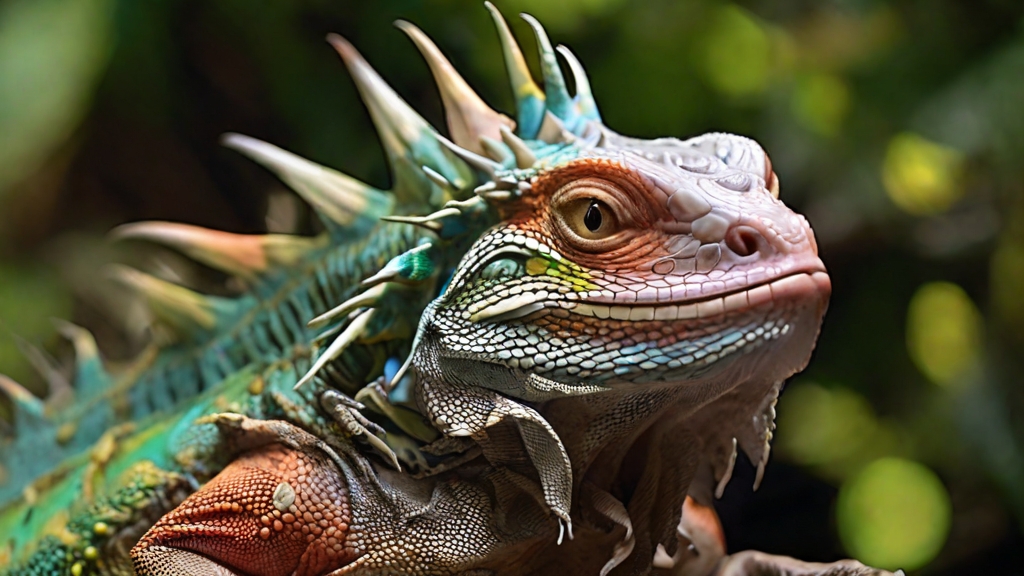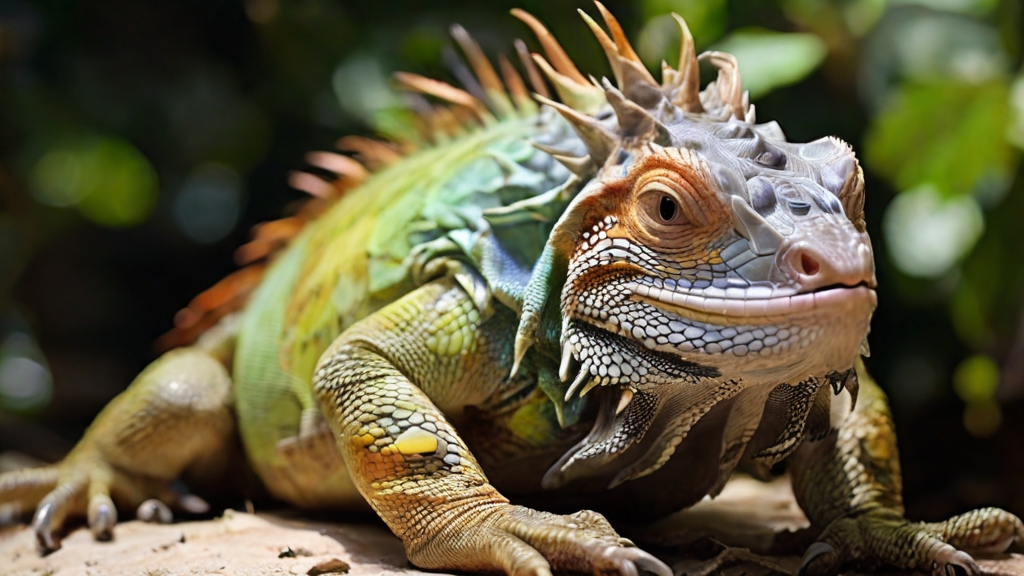Will Iguanas Attack You? Everything You Need to Know
What Are Iguanas?
Iguanas are large, herbivorous reptiles that are native to tropical regions of Central and South America. They are known for their distinctive appearance, with long tails, strong limbs, and a crest of spines running down their backs. These reptiles can grow to impressive sizes, with some species reaching lengths of up to six feet. Iguanas are popular pets due to their unique beauty, but they also require specialized care and attention.
Understanding Iguana Behavior
To determine whether iguanas will attack you, it is essential to understand their behavior patterns. Iguanas are generally docile creatures that prefer to avoid conflict. They spend most of their time basking in the sun, feeding on vegetation, and seeking shelter in trees or burrows. However, when threatened or cornered, iguanas may exhibit aggressive behavior as a means of self-defense. It is crucial to respect their personal space and avoid actions that may provoke them.
Factors That Trigger Iguana Aggression
Several factors can trigger aggression in iguanas. These include territorial instincts, fear, stress, and feeling threatened. Iguanas are protective of their territory and may become aggressive towards humans or other animals that invade their space. They may also become agitated when they feel trapped or cornered. Additionally, if an iguana is in pain, sick, or experiencing discomfort, it may display aggression as a defensive mechanism.
Recognizing Signs of Aggression in Iguanas
It is important to be able to identify signs of aggression in iguanas to avoid potential attacks. Some common signs include hissing, puffing up their body and throat, tail whipping, lunging, and biting. If an iguana exhibits these behaviors, it is best to keep a safe distance and avoid any sudden movements that may escalate the situation. Understanding these warning signs can help prevent potential harm to both humans and the iguanas themselves.
How to Safely Interact with Iguanas
While iguanas may display aggression in certain situations, it is possible to safely interact with them by following some guidelines. Firstly, it is essential to approach them calmly and slowly, allowing them to become accustomed to your presence. Avoid direct eye contact, as this can be seen as a threat. Instead, maintain a relaxed posture and speak softly to reassure the iguana. It is also crucial to avoid sudden movements, as this can startle them. By respecting their space and boundaries, it is possible to have a peaceful and positive interaction with an iguana.
Preventing Iguana Attacks: Dos and Don’ts
To prevent iguana attacks, there are certain dos and don’ts that should be followed. Do keep a safe distance from wild iguanas and respect their natural habitat. Don’t attempt to touch or handle them without proper training and experience. Do use barriers, such as fences or screens, to prevent iguanas from entering your property. Don’t intentionally provoke or taunt iguanas, as this can lead to aggressive behavior. By adhering to these guidelines, you can minimize the risk of iguana attacks.
What to Do If an Iguana Attacks
If you find yourself in a situation where an iguana attacks, it is important to remain calm and take appropriate action. Do not panic or attempt to fight back, as this may escalate the situation. Instead, try to create distance by slowly backing away. If possible, seek shelter indoors or behind a barrier. Once the iguana retreats, it is advisable to contact local animal control or wildlife authorities for further assistance and guidance.
Seeking Professional Help for Aggressive Iguanas
If you are dealing with an aggressive pet iguana, it is recommended to seek professional help from a reptile behaviorist or veterinarian experienced in reptile care. These experts can assess the underlying causes of aggression and provide guidance on how to modify the iguana’s behavior through proper training and environmental enrichment. Seeking professional assistance is crucial for the well-being of both the iguana and the owner.
Legal Considerations and Iguana Ownership
Before considering owning an iguana as a pet, it is important to be aware of the legal regulations surrounding their ownership. In some jurisdictions, iguanas are classified as exotic pets and require permits or licenses. It is essential to research and comply with local laws to ensure legal ownership and avoid potential legal issues. Additionally, it is crucial to understand the commitment and responsibility involved in caring for an iguana, as they have specific dietary, environmental, and social needs.
How to Coexist Peacefully with Iguanas
To coexist peacefully with iguanas, it is important to respect their natural habitat and behavior. Avoid encroaching on their territory or disturbing their nests. Planting dense vegetation can provide them with shelter and a natural food source. If you encounter a wild iguana, observe it from a distance and appreciate its beauty from afar. By appreciating and protecting their natural environment, we can ensure the conservation of these amazing reptiles.
Conclusion: Understanding and Respecting Iguanas
In conclusion, iguanas are generally docile creatures that prefer to avoid conflict. However, they may display aggression if they feel threatened or cornered. By understanding their behavior, recognizing signs of aggression, and following appropriate guidelines, it is possible to safely interact with iguanas. Respecting their space and natural habitat is crucial for their well-being and our coexistence with these fascinating reptiles. Let us appreciate and protect these creatures, ensuring their survival for future generations to enjoy.




